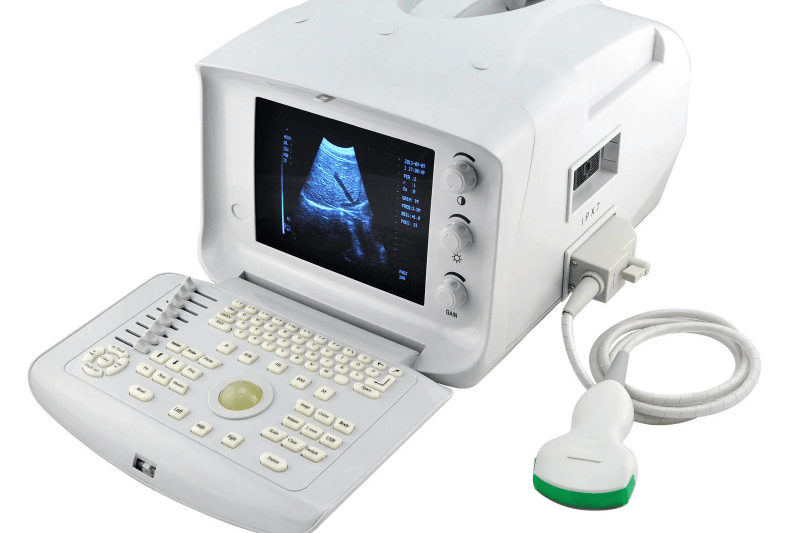Portable ultrasound devices are making a difference to maternal health care in remote Kenyan villages, enabling pregnancy-related complications to be identified earlier.
This critical technology is improving the health of mothers and babies, offering new hope to marginalised communities.
37-year-old Namunyak Tajiri, a mother of nine from a remote village in Namanga, has difficulty accessing health facilities.
Today, pregnant with twins, she feels more optimistic than ever because she can benefit from antenatal services thanks to a portable ultrasound machine. Previous pregnancies were fraught with difficulties, and her third ended in heartbreak when she lost one of her twins.
Started in November 2020, UNFPA’s mobile ultrasound programme has trained many midwives and examined more than 2,500 women in Kajiado, Migori, Homabay and Kisii counties.
The devices are provided free of charge, helping midwives to identify pregnancy complications early on and significantly reducing the risk of maternal and infant death.
Says Dorothy Kwamboka, a nurse at the Namanga health centre: ‘We have women who come from very far away, so transport is a big problem. We have to use the mobile phone, even though we can sometimes get there. If you’ve got so many mothers, you can’t do many scans because of electricity problems. Then there are the financial constraints, there are those who say they may not be able to pay.
The technology of portable ultrasound provides essential medical assistance, particularly in places where access to healthcare is limited and where cultural attitudes may prevent pregnant women from going to hospital for antenatal check-ups.
The portable design of the device has significantly improved midwives’ services, enabling them to reach remote areas and provide essential care to women who live far from medical centres.
They highlight the importance of scans and the benefits of early planning to prevent complications.
Africa is struggling to meet its maternal mortality targets for a number of reasons, according to Pilar Molina, a specialist in sexual and reproductive health and UNFPA’s deputy representative in Kenya.
Keep Reading
Expectant mothers receive information about the position of the baby and the placenta, which helps them choose between a normal delivery and a caesarean section. Doctors can also quickly spot problems such as breech position and identify the baby’s sex.
According to the UNFPA, 355 women die of pregnancy-related causes for every 100,000 live births in Kenya. In Kenya, this means that around 5,000 women and girls lose their lives each year as a result of complications related to pregnancy and childbirth.

